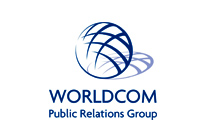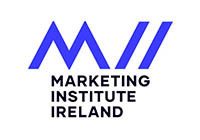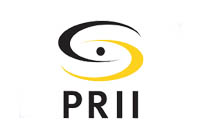
Green Hushing be Gone! Navigating Sustainability Comms in Business
In recent years, marketplace realities have transformed, with sustainability driving the agenda now.
Businesses must embrace new reporting obligations under the Corporate Sustainability Reporting Directive (CSRD), highlighted as a game changer by Davy’s 2024 insights. The EU Council’s consensus on the Corporate Sustainability Due Diligence Directive (CSDD) also signals a pivotal step in enforcing environmental responsibility.
These ground-breaking directives signify compliance and commitments for companies and their suppliers. It’s essential to recognise that this will impact every business sector, irrespective of size or scale.
This is a new era of corporate responsibility, where sustainability is not just an option but an obligation. The direction of travel towards a green economy is loud and clear and we all need to get on board.
The Fear of Greenwashing & The Emergence of Green Hushing
The fear of greenwashing looms large in the minds of businesses that want to demonstrate their commitment to sustainability. Greenwashing (defined as the deceptive or exaggerated marketing of environmental credentials) poses a significant risk to companies’ reputations and credibility.
Many of us are aware of Volkswagen’s “Clean Diesel” scandal, where the automotive giant falsely marketed its diesel vehicles as environmentally friendly. This scandal not only damaged Volkswagen’s reputation but also highlighted the consequences of greenwashing in the corporate world. Many organisations are now hesitant to communicate their sustainability initiatives openly, fearing accusations of insincerity or dishonesty.
Enter “green hushing”. Driven by the pervasive fear of being stamped with the dreaded label of greenwashing, businesses are delicately balancing on the tightrope between transparency and the looming threat of reputational damage.
This has been underscored by the latest insights from South Pole, a prominent authority on offsets, whose annual Net Zero Survey revealed the majority of companies are intentionally decreasing their climate communications.
Navigating the Communication Conundrum
For companies grappling with the tension between transparency and the fear of greenwashing, navigating the communication conundrum requires balance. The risk of greenwashing is real, yet silence or minimal disclosure is not the solution.
Transparency — particularly with publicly stated commitments and demonstrable actions — is critical, as is the level of integrity with which the disclosure is made. Rather than shying away from communication, companies should embrace transparency as a means of fostering accountability and driving positive change.
The Transparency Edge survey by Smurfit Kappa, in partnership with the Financial Times, found that 63% of businesses believe they have complete transparency on how and why sustainability decisions are made. The research highlighted the importance of transparency, underscoring how it is “central to building confidence among consumers, investors and critical stakeholders”.
Those businesses deemed to be ‘Sustainability Leaders’ — 11% believe they have a robust and actionable sustainability strategy — are “ahead of the pack” the 2023 report said when it comes to four key aspects of transparency:
- Ensuring alignment between sustainable action and ambition
- Measuring progress on net zero initiatives
- Communicating effectively to build trust
- Independent assurance of sustainability performance
Organisations must adopt a proactive and authentic approach to sustainability communications, grounded in transparency, credibility, and accountability. This entails openly sharing information about sustainability practices, goals, challenges, and progress, even when the narrative is not entirely favourable.
The recent launch of Siemens EcoTech exemplifies the power of transparency in sustainability communication. Siemens’ innovative product label approach sets a new standard for transparency in the industry, providing consumers with comprehensive information about a product’s lifecycle performance and environmental impact. Another global giant, Starbucks also reviews its performance in the publication of its annual Global Environmental and Social Impact (GESI) Report, detailing its progress towards sustainability goals and inviting feedback from customers and investors.
Authentic Sustainability Communication
As businesses navigate the complexities of sustainability communication, it’s imperative to remember that transparency is the cornerstone of trust. By adopting authentic and accountable communications practices, companies can not only mitigate the risk of greenwashing but also drive positive change for the planet and society as a whole.
At Springboard Communications, we recognise the importance of authentic sustainability communication in driving positive change for all businesses, regardless of scale or size.
Through our comprehensive suite of services, we partner with purpose-led businesses to solve complex problems, protect reputations, and drive communications for positive change. By embracing transparency and accountability, we empower businesses to navigate the complexities of sustainability communication with confidence and integrity.
Join the conversation and let’s work together to create a more sustainable future.
Contact nora@springboardcommunications.ie to learn more about the value of sustainability communications.
For more stories like this sign up for our Insights newsletter ›
BACK TO TOP









